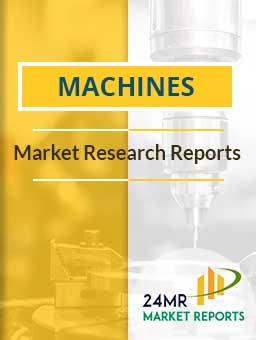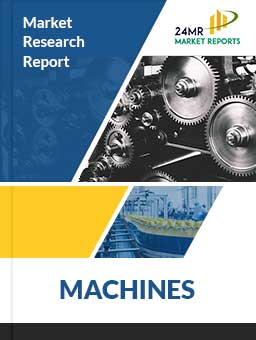
Download FREE Report Sample
Download Free sampleMARKET INSIGHTS
The global high-pressure LPG cylinder market was valued at USD 2.49 billion in 2024 and is projected to reach USD 3.19 billion by 2032, exhibiting a CAGR of 3.7% during the forecast period. This steady growth reflects the continued demand for portable LPG solutions across multiple sectors.
High-pressure LPG cylinders are specialized containers designed for storing and transporting liquefied petroleum gas under pressure. These robust vessels serve diverse applications from household cooking to industrial processes, featuring prominently in sectors like hospitality, agriculture, and transportation. Their versatility enables both indoor and outdoor use, making them indispensable for applications ranging from caravan fuel supplies to construction site power generation.
Market expansion is driven by increasing LPG adoption in developing economies and the push for cleaner energy alternatives. While steel cylinders dominate with over 90% market share, composite alternatives are gaining traction due to their lighter weight. The kitchen and domestic segment leads application demand, though automotive uses are growing steadily as fleets transition to LPG fuel systems. North America remains a key market, with industry leaders Worthington Industries, Luxfer Gas Cylinders, and Manchester Tank collectively holding about 80% of regional capacity.
Growing Demand for Clean Energy Solutions Driving LPG Cylinder Adoption
The global shift toward cleaner energy alternatives continues to fuel demand for high-pressure LPG cylinders. With increasing environmental awareness and stringent emission regulations, LPG has emerged as a transitional fuel with 20-30% lower carbon emissions compared to traditional fuels. The residential sector alone accounts for over 65% of LPG cylinder usage, particularly in developing nations where electrification remains inconsistent. Market projections indicate Asia-Pacific will maintain its dominant 42% market share through 2032, driven by government initiatives promoting LPG as a cooking fuel alternative.
Industrial Applications Expanding Market Potential
To know more about market statistics, Download a FREE Sample copy
Beyond domestic use, high-pressure LPG cylinders are gaining traction across industrial verticals. The automotive sector utilizes LPG in fleet vehicles and forklifts, with Europe accounting for nearly 38% of automotive LPG consumption. Construction sites increasingly adopt portable LPG solutions for heating and power tools, while the hospitality industry leverages cylinder-based systems for commercial kitchens. Recent infrastructure projects in emerging economies are expected to drive 18-22% annual growth in construction-related LPG cylinder demand through 2027.
Manufacturers are responding with product innovations such as lightweight composite cylinders, which now represent 8-12% of the market but are projected to grow at 6.5% CAGR. These address transportation and handling challenges while meeting evolving safety standards.
Safety Concerns and Regulatory Complexity Impacting Market Expansion
Despite growth opportunities, the high-pressure LPG cylinder market faces significant restraints. Safety incidents involving cylinder leaks or explosions continue to deter consumer confidence, particularly in regions with inadequate safety education. Regulatory frameworks vary substantially across markets - while North America and Europe maintain stringent DOT and UN pressure vessel standards, developing markets often lack uniform enforcement. The certification process for new cylinder designs can require 12-18 months and $250,000-$500,000 in testing costs, creating barriers for smaller manufacturers.
The industry also contends with counterfeit cylinders entering supply chains, accounting for an estimated 7-9% of the African market. These unauthorized products frequently bypass critical safety checks, creating liability concerns for legitimate operators.
Raw Material Volatility and Supply Chain Disruptions
Steel price fluctuations present persistent challenges, with cylinder manufacturing steel costs increasing 28-34% between 2020-2023. The industry's heavy reliance on specific steel alloys makes production costs particularly sensitive to commodity market shifts. Meanwhile, composite cylinder manufacturers face intermittent carbon fiber shortages, with lead times extending from 8 weeks to 6 months during supply chain disruptions.
Operational Challenges
Distribution networks require substantial infrastructure investment, especially in emerging markets where last-mile delivery can account for 35-45% of total costs. Cylinder recertification logistics present additional complexities, with an estimated 15-20% of cylinders failing mandatory 5-year requalification tests. The industry also struggles with cylinder tracking and inventory management, leading to $120-$150 million in annual losses from unaccounted cylinders globally.
Smart Cylinder Technologies Creating New Value Propositions
The integration of IoT technologies presents transformative opportunities for the LPG cylinder market. Smart cylinders equipped with sensors can monitor fill levels, detect leaks, and enable automated refill ordering - features that could reduce operational costs by 18-22%. Pilot programs in Japan and Germany have demonstrated 30% improvement in delivery efficiency through such technologies. Major players are investing heavily in R&D, with Worthington Industries allocating $15 million annually to smart cylinder development.
Emerging markets offer significant untapped potential, particularly in Africa where LPG penetration remains below 15% of households. Government subsidy programs in Nigeria, Ghana, and Kenya aim to boost adoption rates through cylinder circulation schemes. The marine sector also presents growth avenues, with new emissions regulations driving demand for LPG-powered auxiliary ship systems requiring specialized cylinder solutions.
LPG Steel Cylinder Segment Dominates Due to Cost-Effectiveness and High Durability
The market is segmented based on type into:
LPG Steel Cylinder
Subtypes: Standard Cylinders, Welded Cylinders, and others
LPG Composite Cylinder
Others
Kitchen & Domestic Segment Leads Due to Extensive Household Adoption of LPG
The market is segmented based on application into:
Kitchen & Domestic
Automotive
Industrial
Commercial
Others
High-Grade Steel Segment Holds Majority Share Due to Safety Standards
The market is segmented based on material into:
High-Grade Steel
Composite Materials
Aluminum
Others
5-15 kg Cylinders Are Most Preferred for Household Applications
The market is segmented based on capacity into:
Below 5 kg
5-15 kg
15-45 kg
Above 45 kg
Market Leaders Focus on Technological Innovation and Strategic Expansion
The global high-pressure LPG cylinder market exhibits a semi-consolidated structure dominated by established manufacturers with strong regional footprints. Worthington Industries and Luxfer Gas Cylinders collectively hold over 40% market share, leveraging their advanced manufacturing capabilities and extensive distribution networks across North America and Europe. These industry giants continue to reinforce their positions through continuous product innovation, particularly in lightweight composite cylinder technologies.
Meanwhile, Asian manufacturers like Hebei Baigong and Jiangsu Minsheng are rapidly gaining ground, capitalizing on cost advantages and surging domestic demand. Their growth reflects broader industry shifts toward emerging markets where LPG adoption for residential and automotive applications is accelerating. Unlike Western counterparts focused on high-end composite solutions, these players primarily compete through steel cylinder production where they command pricing advantages.
The competitive landscape is witnessing a strategic bifurcation - while major players emphasize R&D for advanced materials compliant with evolving safety standards, mid-sized companies are pursuing aggressive geographic expansions. Hexagon Ragasco recently enhanced its European market position through a strategic partnership with a leading energy distributor, demonstrating how collaboration is becoming crucial for sustained growth.
Product differentiation strategies are intensifying as manufacturers address varying regional regulatory environments and application requirements. The market's technological frontier is currently defined by the race to develop next-generation composite cylinders that meet stringent safety norms while reducing weight by 30-40% compared to traditional steel variants. This innovation push is reshaping competitive dynamics, with companies like Luxfer and Hexagon Ragasco maintaining first-mover advantages in composite technology.
The high-pressure LPG cylinder market is witnessing a significant shift toward composite materials, driven by their superior weight-to-strength ratio and corrosion resistance. While steel cylinders still dominate with over 90% market share, composite alternatives are gaining traction at a projected CAGR of 6.2% through 2032. This transition is particularly evident in European markets where regulatory emphasis on lightweight transport solutions has increased composite cylinder adoption by 27% since 2021. Recent advancements in fiber-reinforced polymer technologies have extended product lifespans beyond 15 years, making them economically viable despite higher upfront costs.
Expansion of Autogas Vehicle Applications
The global push for cleaner automotive fuels has created a 14% surge in demand for high-pressure LPG cylinders in vehicle conversions. Emerging markets in Southeast Asia and Latin America are leading this transition, with Thailand and Indonesia collectively converting over 300,000 vehicles annually to LPG systems. Manufacturers are responding with specialized cylinder designs featuring enhanced safety valves and impact-resistant coatings, particularly for taxi fleets and public transportation networks where LPG offers significant cost advantages over traditional fuels.
IoT-enabled cylinders equipped with real-time pressure monitoring and automated refill alerts are reshaping the residential LPG segment. These smart systems reduce safety incidents by 35% while optimizing distribution logistics through predictive demand algorithms. North American providers have deployed over 2 million smart cylinders since 2022, primarily for recreational and off-grid housing applications. The technology is now expanding into commercial kitchens, where integrated usage tracking helps businesses manage energy consumption more efficiently. This innovation aligns with growing smart city infrastructure investments projected to reach $1.2 trillion globally by 2025.
North America
The North American High-pressure LPG Cylinder market is characterized by high safety standards and stringent regulatory oversight, driving demand for steel-dominant cylinders with advanced safety certifications. Leading manufacturers like Worthington Industries and Luxfer Gas Cylinders dominate nearly 80% of the regional market share, focusing on durability and compliance with U.S. Department of Transportation (DOT) specifications. The U.S., Canada, and Mexico show steady demand primarily for kitchen and automotive applications, though recent investments in composite cylinder R&D hint at a gradual shift toward lighter alternatives. However, higher costs and entrenched steel cylinder preferences slow this transition.
Europe
Europe’s market thrives on sustainability-driven innovation, with composite cylinders gaining traction due to EU directives promoting lightweight, recyclable materials. Countries like Germany and France lead in adopting composite variants, supported by stringent EN 1442 standards. The region’s well-established LPG distribution networks for residential and industrial use sustain demand, though price sensitivity in Eastern Europe keeps steel cylinders dominant. Manufacturers such as Hexagon Ragasco and Faber Industrie prioritize carbon-fiber-reinforced designs, aligning with the bloc’s decarbonization goals. Regulatory push for low-emission energy sources further bolsters LPG adoption.
Asia-Pacific
As the largest and fastest-growing market, Asia-Pacific is fueled by urbanization and expanding LPG accessibility programs in India ("Ujjwala Scheme") and China. Steel cylinders retain over 90% market share due to affordability, with key players like Jiangsu Minsheng and Sahamitr Pressure Container scaling production. However, Japan and South Korea exhibit rising demand for composites in automotive and portable applications. Challenges include uneven safety enforcement and counterfeit products in emerging markets, though government initiatives to standardize cylinder specifications aim to mitigate risks.
South America
South America’s market is fragmented, with Brazil and Argentina leading in cylinder production and consumption. Economic volatility and subsidized energy policies sway demand, though the lack of local composite cylinder manufacturers creates import reliance. Steel variants dominate for domestic cooking, while automotive adoption remains niche due to underdeveloped LPG vehicle infrastructure. Recent investments in bio-LPG initiatives could spur long-term growth, but currency fluctuations and regulatory delays pose hurdles for market expansion.
Middle East & Africa
This region presents untapped potential, driven by LPG’s role as a cleaner alternative to kerosene. GCC countries like Saudi Arabia and the UAE prioritize cylinder safety upgrades, while Africa’s growth is hindered by informal cylinder recirculation and limited refilling infrastructure. Turkey and South Africa emerge as production hubs, though political instability in parts of Africa dampens investor confidence. The push for commercial LPG applications (e.g., forklifts, generators) offers incremental opportunities, but low per-capita income remains a barrier to widespread adoption.
This market research report offers a holistic overview of global and regional markets for the forecast period 2025–2032. It presents accurate and actionable insights based on a blend of primary and secondary research.
✅ Market Overview
Global and regional market size (historical & forecast)
Growth trends and value/volume projections
✅ Segmentation Analysis
By product type or category
By application or usage area
By end-user industry
✅ Regional Insights
North America, Europe, Asia-Pacific, Latin America, Middle East & Africa
Country-level data for key markets
✅ Competitive Landscape
Company profiles and market share analysis
Key strategies: M&A, partnerships, expansions
✅ Technology & Innovation
Emerging technologies and R&D trends
Automation and sustainability initiatives
✅ Market Dynamics
Key drivers supporting market growth
Restraints and potential risk factors
✅ Opportunities & Recommendations
High-growth segments
Strategic suggestions for stakeholders
-> Key players include Worthington Industries, Luxfer Gas Cylinders, Manchester Tank, Hebei Baigong, Sahamitr Pressure Container, Mauria Udyog, and Aygaz, among others. The top three manufacturers hold about 80% market share.
-> Key growth drivers include increasing LPG adoption for cooking fuel, growth in automotive LPG applications, and rising demand for portable energy solutions across residential and commercial sectors.
-> Asia-Pacific dominates the market due to high LPG consumption in countries like India and China, while North America leads in technological advancements.
-> Emerging trends include development of lightweight composite cylinders, smart cylinder technologies with IoT integration, and increased focus on safety standards.

Speak to our Custom Research Team and get the Custom Research in a budget
Custom ResearchFrequently Asked Questions ?
A license granted to one user. Rules or conditions might be applied for e.g. the use of electric files (PDFs) or printings, depending on product.
A license granted to multiple users.
A license granted to a single business site/establishment.
A license granted to all employees within organisation access to the product.
Upto Working 24 to 48 hrs
Upto 72 hrs max - Weekends and Public Holidays
Online Payments with PayPal and CCavenue
Wire Transfer/Bank Transfer
Hard Copy




 Industry Market Size
Industry Market Size SWOT Analysis
SWOT Analysis Industry Major Players
Industry Major Players Revenue Forecasts
Revenue Forecasts Historical and Forecast Growth
Historical and Forecast Growth Profitability Analysis
Profitability Analysis
























